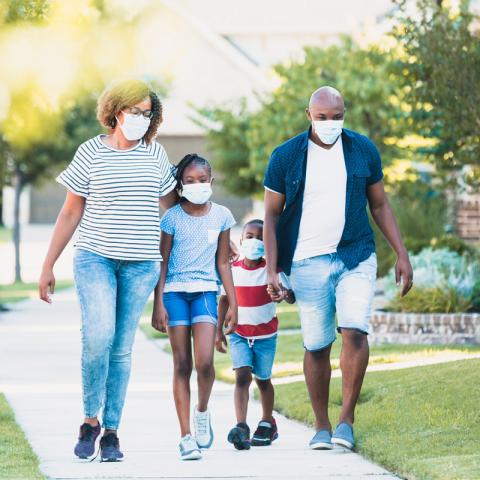
National Institutes of Health
Authors: Tabia Henry Akintobi, Theresa Jacobs, Darrell Sabbs, et al.
Contact hours: 1.5
Expiration date: December 31, 2021
Course price: $12
Course Summary
African Americans, compared with all other racial/ethnic groups, are more likely to contract coronavirus disease 2019 (COVID-19), be hospitalized for it, and die of the disease. Psychosocial, sociocultural, and environmental vulnerabilities, compounded by preexisting health conditions, exacerbate this health disparity. Interconnected historical, policy, clinical, and community factors ex-plain and underpin community-based participatory research approaches to advance the art and science of community engagement among African Americans in the COVID-19 era.
In this commentary, we detail the pandemic response strategies of the Morehouse School of Medicine Prevention Research Center. We discuss the implications of these complex factors and propose recommendations for addressing them that, adopted together, will result in community and data-informed mitigation strategies. These approaches will proactively prepare for the next pandemic and advance community leadership toward health equity.
Community and public health leaders in health care, behavioral health, and policy must consider the implications of health inequities among racial/ethnic minority populations, seriously tackle their root causes, and develop culturally responsive COVID-19 strategies for socially vulnerable African Americans. Approaches that elevate marginalized communities as senior partners in planning, implementing, and evaluating strategies will promote community leadership and increase adherence to health communication messages as the COVID-19 pandemic evolves.
Efforts should be characterized by strong data (research or evaluation), contextually relevant community engagement strategies, and action (policy, systems, and environmental change approaches). The COVID-19 pandemic has presented an optimal opportunity to reprioritize and sustain approaches toward advancing community engagement of vulnerable African Americans. These new approaches will prepare us for the next pandemic. More importantly, they will foster leadership in advancing health equity.
Citation: Henry Akintobi T, Jacobs T, Sabbs D, Holden K, Braithwaite R, Johnson LN, et al. (2020). Community engagement of African Americans in the era of COVID-19: Considerations, challenges, implications, and recommendations for public health. Prev Chronic Dis 17:200255. Doi:/10.5888/pcd17.200255.
Criteria for Successful Completion
A score of 80% or higher on the post test, a completed evaluation form, and payment where required. No partial credit will be awarded.
Accreditation
To find specific accreditations or approvals, click here.
Course Objectives
When you finish this course you will be able to:
- Name 5 contemporary social factors that have led to African Americans’ lack of access to medical care.
- Discuss 4 response strategies that can address better medical services to African American communities.
